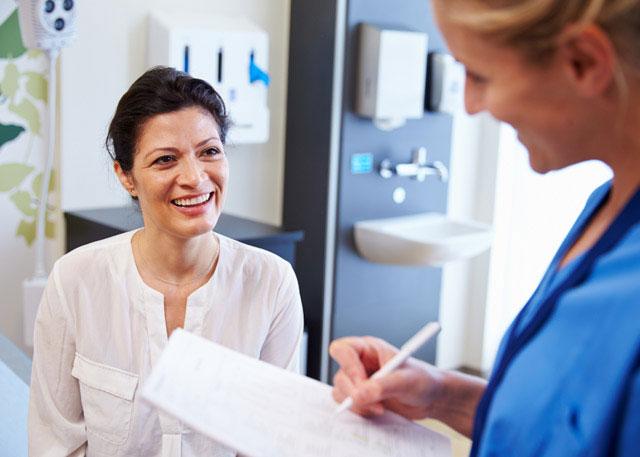
Hormonal Changes In Menopause
Menopause is the permanent end of menstruation and fertility in women, occurring typically between the ages of 45 and 55. It is caused by the decline in estrogen and other hormones produced by the ovaries. Common symptoms include hot flashes, night sweats, sleep disturbances, and mood changes.
Hormonal changes in menopause can be a real nuisance – from sudden hot flashes, night sweats and mood swings, to sleepless nights, brain fog and more – all the while you have to pretend everything is ok so people don’t think you’re crazy!
Reproductive hormones like estrogen and progesterone play an important role in regulating everything from your mood and energy levels, brain and bone health, heart health and even your sleep patterns.
So when you’re dealing with the challenges of menopause, restoring hormone balance is helpful to decrease symptoms and may reduce the risk for future conditions like osteoporosis, type 2 diabetes, heart attack, and cognitive decline.
Keep reading to learn more about hormonal changes in menopause and how you can maintain optimal hormone levels during this challenging time of transition.

Menopause Explained
Menopause is a natural part of the aging process for women, marked by the cessation of menstrual periods and a decline in hormone production, especially estrogen.
This change in hormone levels can result in the aforementioned symptoms such as hot flashes, night sweats, sleep disturbances, mood and cognitive changes.
Importantly, this transition period also comes with a statistically higher risk for health problems like breast cancer, osteoporosis, heart disease, arthritis and depression – so it’s important to partner with a medical doctor specializing in hormone health to maintain optimal health throughout both perimenopause and menopause.
Fortunately, we now have a much deeper understanding of what impacts hormonal changes, how to manage them more effectively, and treatments such as FDA-approved bioidentical hormone replacement therapy (BHRT) that provide effective symptom relief while protecting your long-term health. It might surprise you to learn that there are now FDA approved bioidentical hormones!
Hormones may not be appropriate for everyone, and this decision is individual. There are many other natural ways to feel better during the menopause transition. Ideally, women approaching menopause (or who are already in menopause) will want to adjust their lifestyle, diet and sleep habits to naturally lessen symptoms like weight gain, fatigue, and insomnia.

Treatment For Menopausal Symptoms
Given our team’s expertise in treating hormone imbalances, the best first step is to schedule a free discovery call to discuss your situation and what might be required. We will help you understand what’s going on and come up with a comprehensive plan that might involve bioidentical hormone replacement therapy.

